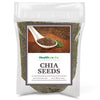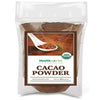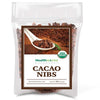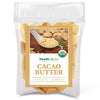
Clean Eating to Feel Good
Clean Eating is your home for clean cooking and clean living. Eating the way nature intended. A way of living that improves one's health and well-being to live a happy life.
Clean eating gives you control over food because you don't get sucked into craving all the unnecessary food you don't need. Instead, you choose what you take into your body and that gives you a sense of accomplishment, power, and health.
It is important to understand that clean eating is more of a lifestyle rather than a diet. Eating clean isn't getting skinny. Instead, it's a way to approach how you eat and what you take into your body. Embracing vegetables, whole foods, unrefined grains, lean proteins, and healthy fats; avoiding processed foods, and creating a healthy, conscientious approach to what foods you eat. Focus on the quality of the food being consumed and the benefits these foods offer your overall well-being. Eating more of the best and healthiest options in each of the food groups and eating less of the not-so-healthy ones.
It is about thinking better and more nutritious choices for your body. It is also about avoiding taking in junk which includes processed foods, artificial flavors and sugars, foods with lots of salt and high in saturated fats, refined foods.
Clean eating focuses on consuming whole foods that are minimally processed and as close to their natural form as possible. The idea is to combine the clean eating lifestyle with an active life.
Key Principles of Healthy Eating:

1. Cook your own food
The easiest way to control what goes into your body is to be the one who is preparing your food. Cooking your own food to make healthier choices, to spend less and keep up a healthy lifestyle. That way, you will feed your body with the best ingredients, which will make you feel healthier, more energized and lighter. You can control the salt, sugar, flavors, and fats that go in and you can work to keep those levels as low as possible.
2. Read the nutrition labels
You need to get familiar with nutrition labels because they will tell you everything you need to know about the foods you are thinking to eat. Look for labels with relatively few ingredients and consider each ingredient in terms of, “Is this an ingredient I would like to cook wit?”. If not, do not buy it.
3. Eat whole foods
Emphasizes whole, minimally processed foods. Whole foods include fresh fruits and vegetables, lean proteins, unsalted nuts/seeds, whole grains, full-fat dairy products, and dried beans/legumes which should make up the majority of what you eat.
4. Keep away from processed foods
Processed foods can easily be identified since they often come in a box or jar. Collectively, the problem with processed foods is that they are high in added sugar and salt, low in fiber and whole grains, and high in fat (including trans fats and saturated fats). Instead of buying these items at the store for convenience, next time, try making them from scratch, using whole ingredients and your body will be happier.

5. Eat well-balanced meals
Each day includes three meals. Make sure the foods you are choosing contain the right amount of carbohydrates, fats, and proteins since all three are essential for bodily functions. You will also get plenty of fiber from whole grains, fruits, vegetables, and legumes. Every plan includes three meals to keep you feeling satisfied all day long. You want to be mindful of the breakdown of what you’re eating so you know what you’re taking into your body.
6. Control fat, salt, and sugar intake
Since clean eating has the intention of eating food in its most natural, whole state, it makes sense that you would want to avoid unnecessary additives, like fats, salt, and sugar. When choosing your food, look for foods without sugar, salt, and fats as an ingredient, or make sure it's listed towards the bottom, which means less of it is used in the food.

7. Don’t drink your calories
While you’re making mindful decisions about what foods to eat, you also need to be mindful about how much water you’re drinking. High-calorie drinks like coffee and soft drinks, on average, tack on an extra 400 to 500 calories a day. Choose water first. Water will likely be the number one thing you’re drinking all day, every day. Drinking water will not only keep you hydrated and allow your body to function well.




